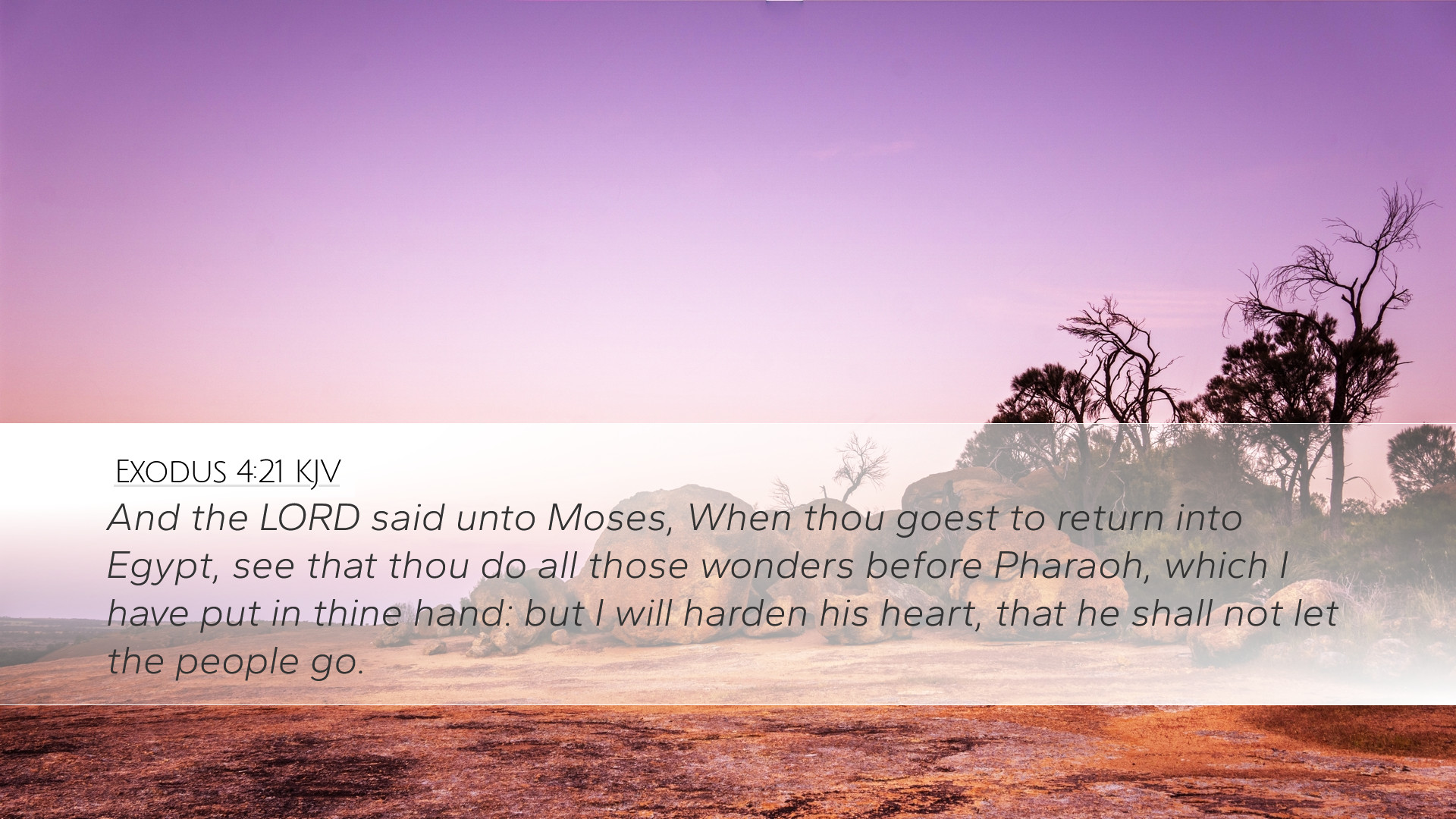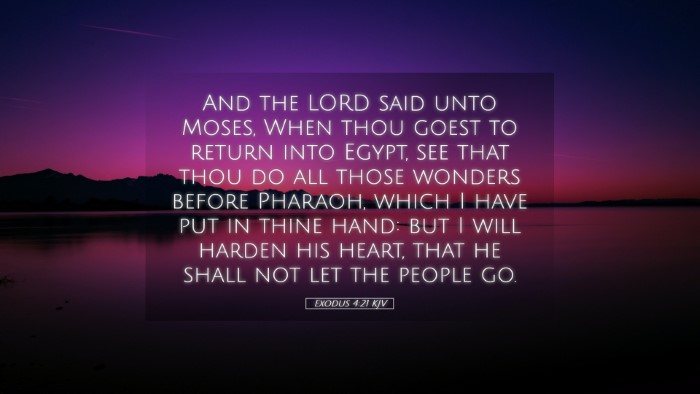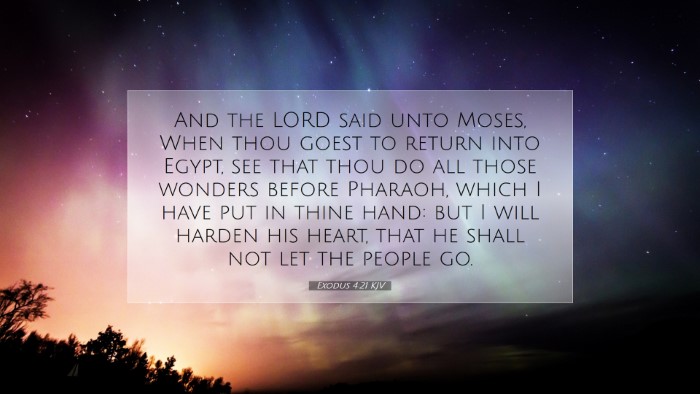Commentary on Exodus 4:21
Verse: Exodus 4:21 - "And the LORD said unto Moses, When thou goest to return into Egypt, see that thou do all those wonders before Pharaoh, which I have put in thine hand: but I will harden his heart, that he shall not let the people go."
Introduction
This verse is pivotal in the narrative of Moses and the Exodus. It encapsulates God's command to Moses regarding the signs he is to perform before Pharaoh, as well as the divine plan of hardening Pharaoh's heart. This multifaceted instruction carries profound theological implications regarding divine sovereignty, human free will, and the nature of resistance to God's will.
Divine Instruction
Moses is reminded of the authority and power that God has bestowed upon him. The wonders he is to perform serve multiple purposes, including demonstrating God’s power, legitimizing Moses' mission, and compelling Pharaoh to heed the divine command.
- Symbolism of Wonders: The miracles signify God's desire to intervene in human affairs. They represent His sovereignty and ability to control nature and human hearts.
- Validation of Mission: By performing wonders, Moses secures his role as God's chosen vessel, reinforcing the legitimacy of his prophetic calling.
The Hardening of Pharaoh’s Heart
The latter part of the verse presents a critical theological concept: the hardening of Pharaoh's heart. This raises questions about free will, predestination, and the mystery of divine chastisement.
- Nature of Hardening: Albert Barnes elucidates that God’s hardening of Pharaoh’s heart doesn’t suggest an arbitrary imposition; rather, it reflects Pharaoh's own inclinations. God reinforces the hardened disposition that Pharaoh has chosen.
- Divine Sovereignty: According to Matthew Henry, this act not only demonstrates God's ultimate authority over creation, but it also serves as a warning to those who oppose divine will. Henry highlights the complexity of God's relationship with human agency.
Theological Implications
Exodus 4:21 invites readers to ponder significant theological dilemmas:
- God's Control vs. Human Responsibility: Adam Clarke emphasizes the coexistence of divine predetermination and human accountability. Pharaoh’s eventual rebellion still necessitates his personal choice, even amidst God’s active hardening.
- Grace and Judgment: The juxtaposition of signs intended to elicit repentance stands against the backdrop of God’s judgment. This complexity reveals the nature of God's engagement with humanity – a balance of grace extended and judgment rendered.
Practical Applications for Believers
Reflecting on Exodus 4:21 can offer contemporary applications for pastors, students, theologians, and Bible scholars:
- Faith in Divine Instruction: The necessity for believers to engage in active obedience to God's directives, assured of His power working through them.
- Caution Against Hardening: A reminder that spiritual hardening can occur through resistance to God's prompting; thus, sensitive and responsive hearts are crucial for spiritual growth.
- Understanding God’s Sovereignty: Awareness that even in challenging scenarios, God remains in control, and His larger plans often operate beyond human understanding.
Conclusion
In summary, Exodus 4:21 is a profound verse that encapsulates the intricacies of divine command, the reality of human heart conditions, and the interplay between God’s sovereignty and human free will. The lessons derived from this text challenge believers to maintain faithfulness and openness to God's calling while also recognizing the implications of resisting that calling.


